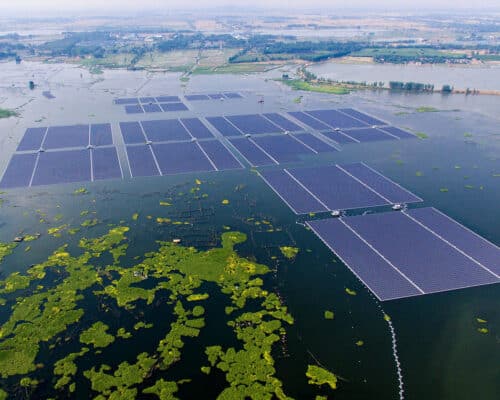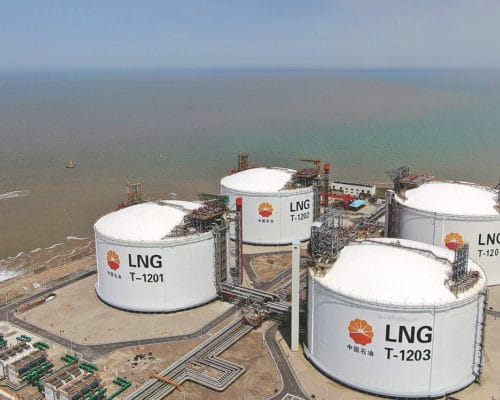Unneeded Papua New Guinea LNG Project Would Harm Environmental and Human Rights
Photo: Wikimedia Commons
28 April 2025 – by Nithin Coca
A planned fossil gas project, called the Papua New Guinea LNG project, is facing increased pressure as investors pull out or express concerns about environmental and human rights risks.
“Approving this project risks wasting billions of taxpayer dollars on infrastructure that will become a stranded asset, and worse, further places our climate goals of minimising global warming to 1.5°C far out of reach,” said Nina Pusic an export finance climate strategist at Oil Change International.
The project, which would see ports, pipelines and other infrastructure built in ecologically sensitive areas, including on Indigenous and traditional community land, would see more fossil gas added to the global market at the time when we need to be shifting away from fossil fuels and towards renewable energy.
13 Investors Refused to Fund the Papua LNG Project
So far, 13 of the top 50 investors in the Papua LNG project have responded to a letter from a coalition of civil society groups, with some, including Australia and New Zealand Banking Group (ANZ), BNP Paribas and Crédit Agricole, committing to not funding the project.
“We consider that almost 26% of investors responded to us directly as a sign that investors are looking more into Papua LNG,” said Yuki Tanabe, program director at the nonprofit Japan Centre for a Sustainable Environment and Society. “Many investors are increasingly aware that the climate and biodiversity crises present a systemic risk to their portfolios.”
Who Owns the Papua New Guinea LNG Project?
There are four main companies involved in the Papua New Guinea LNG Project: France’s TotalEnergies, the United States-based ExxonMobil, Australia’s Santos and Japan’s ENEOS. These fossil fuel giants have a long record of being involved in extraction projects around the world.
“Papua LNG project represents everything wrong with the priorities of TotalEnergies, ExxonMobil, Santos and ENEOS: pursuit of profitability over saving our climate, over preserving biodiversity, over respecting local cultures,” said Lidy Nacpil, with the Asian People’s Movement on Debt and Development.
As for investors, they include Japan’s Nomura and Sumitomo, Charles Schwab and Blackrock from the United States, Switzerland’s UBS and France’s Credit Agricole. Many have commitments to take into account both climate impacts and social considerations when making investment decisions – but for some reason, many are letting this project proceed despite clear red flags.
“While Asia has to contend with the ever worsening effects of climate change, these corporations are pushing for further expansion of gas,” added Nacpil.
Impacts of This Liquefied Natural Gas Project on Local Communities
Beyond the climate risks and the likelihood that if this project moves forward, climate disasters will become more prevalent around the world, is the risk to local communities in Papua New Guinea. According to the Centre for Environmental Law and Community Rights, a Papua New Guinean nonprofit, there has been a failure to inform local communities about impacts, creating a human rights risk and international standards around Free, Prior and Informed Consent (FPIC) have not been met.
“Papua LNG is socially, environmentally and climatically disastrous for the communities in Papua New Guinea,” said Peter Bosip, the centre’s executive director.
The United Nations Guiding Principles on Business and Human Rights were set back in 2011, and call on investors to consider human rights, gender and other social impacts when looking at investments. Similarly, the UN Principles for Responsible Investment call on investment institutions to incorporate environmental, social and governance factors into their decision-making. Clearly, that is not being done here.
“Papua LNG will add to and exacerbate this climate crisis — and financiers cannot, and should not, finance it,” said Bosip.
Awaiting the Final Investment Decision
This is a critical year for the Papua New Guinea LNG Project, as a final investment decision is expected. If more financiers follow ANZ, BNP Paribas and Crédit Agricole, then the project will likely not move forward, a huge victory for the climate, biodiversity and for local communities.
“More and more banks are recognising the severe climate and human rights risks associated with this polluting gas project and deciding they want nothing to do with it,” said Rachel Deans from Market Forces. “Banks, including Japan’s mega banks, which have remained silent on this matter, must urgently distance themselves from this project and disclose their decision.”
In fact, Papua New Guinea should welcome foreign investment — into renewables, that is.
“Fossil fuel companies such as TotalEnergies should promote renewable energies that can benefit Papua New Guinea instead of promoting liquefied natural gas development that will destroy the lives of Papua New Guineans,” said Bosip.
That is why Bosip, Pusic, Tanabe and others in Papua New Guinea and around the world are hoping that the government decides to not move forward with this project, or that the developers and financiers come to their senses and realise that the climate and human rights risks are far, far too high.
by Nithin Coca
Nithin Coca covers climate, environment, and supply chains across Asia. He has been awarded fellowships from the Solutions Journalism Network, the Pulitzer Center, and the International Center for Journalists. His features have appeared in outlets like the Washington Post, Financial Times, Foreign Policy, The Diplomat, Foreign Affairs and more.
Read more








